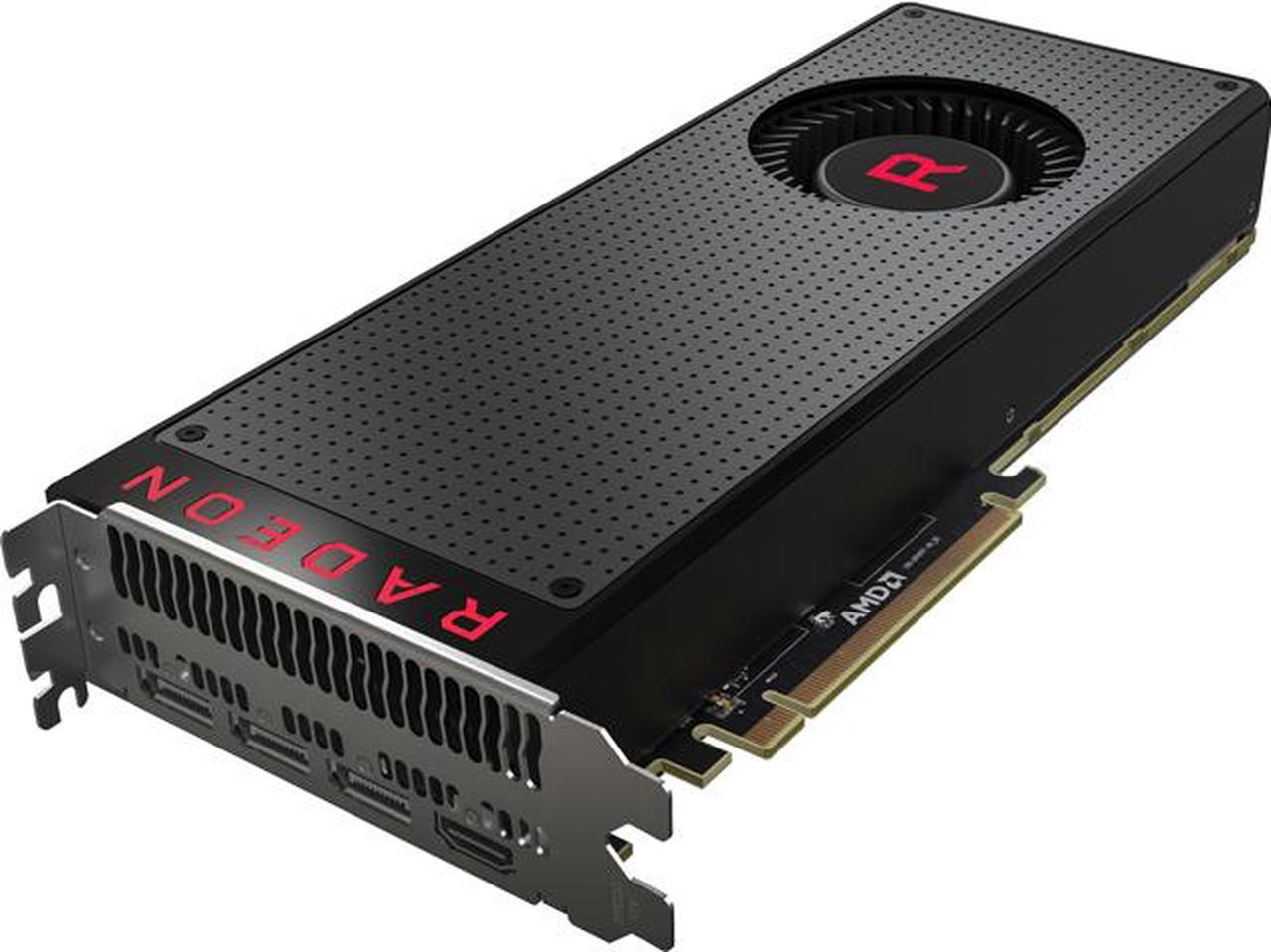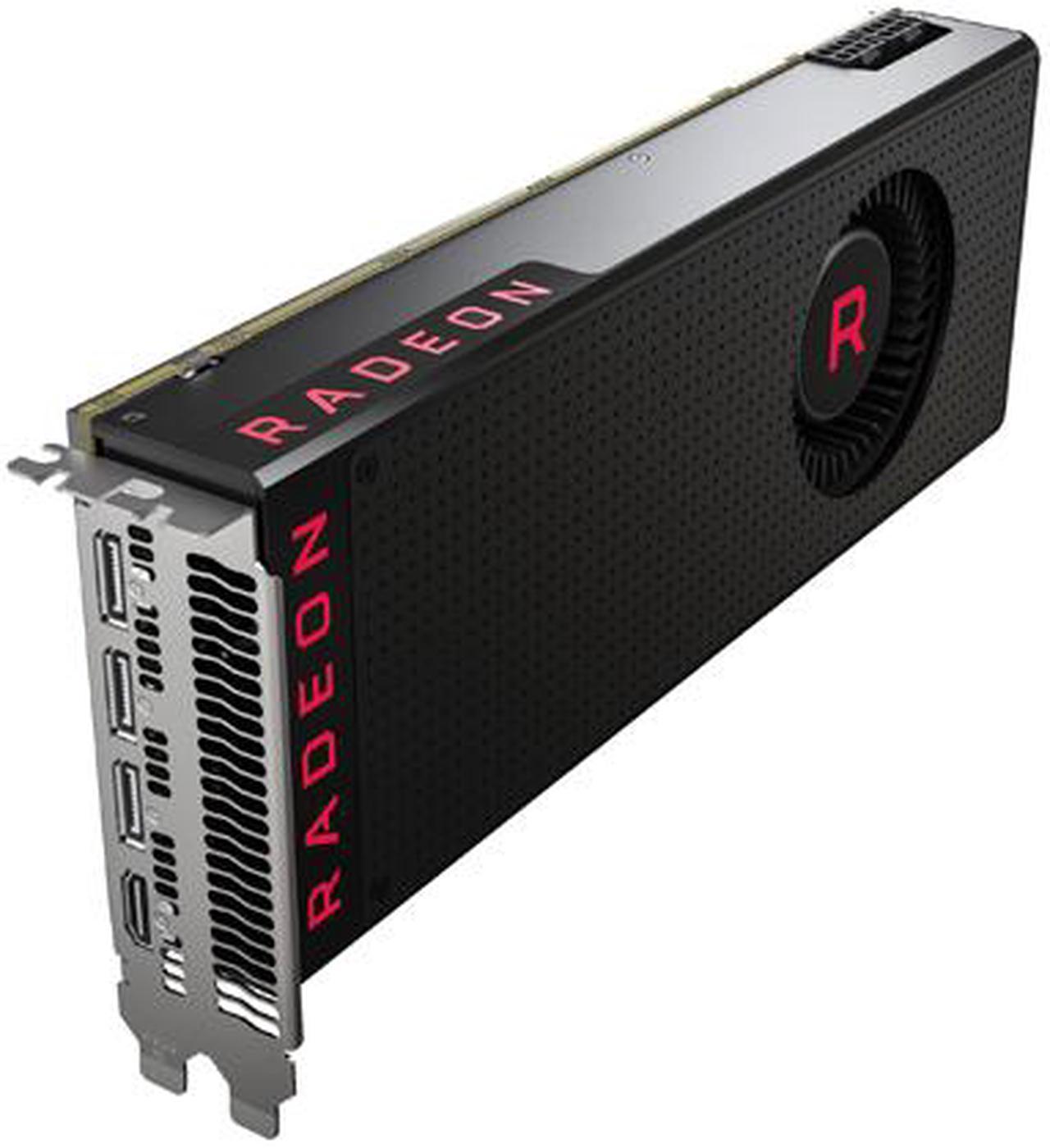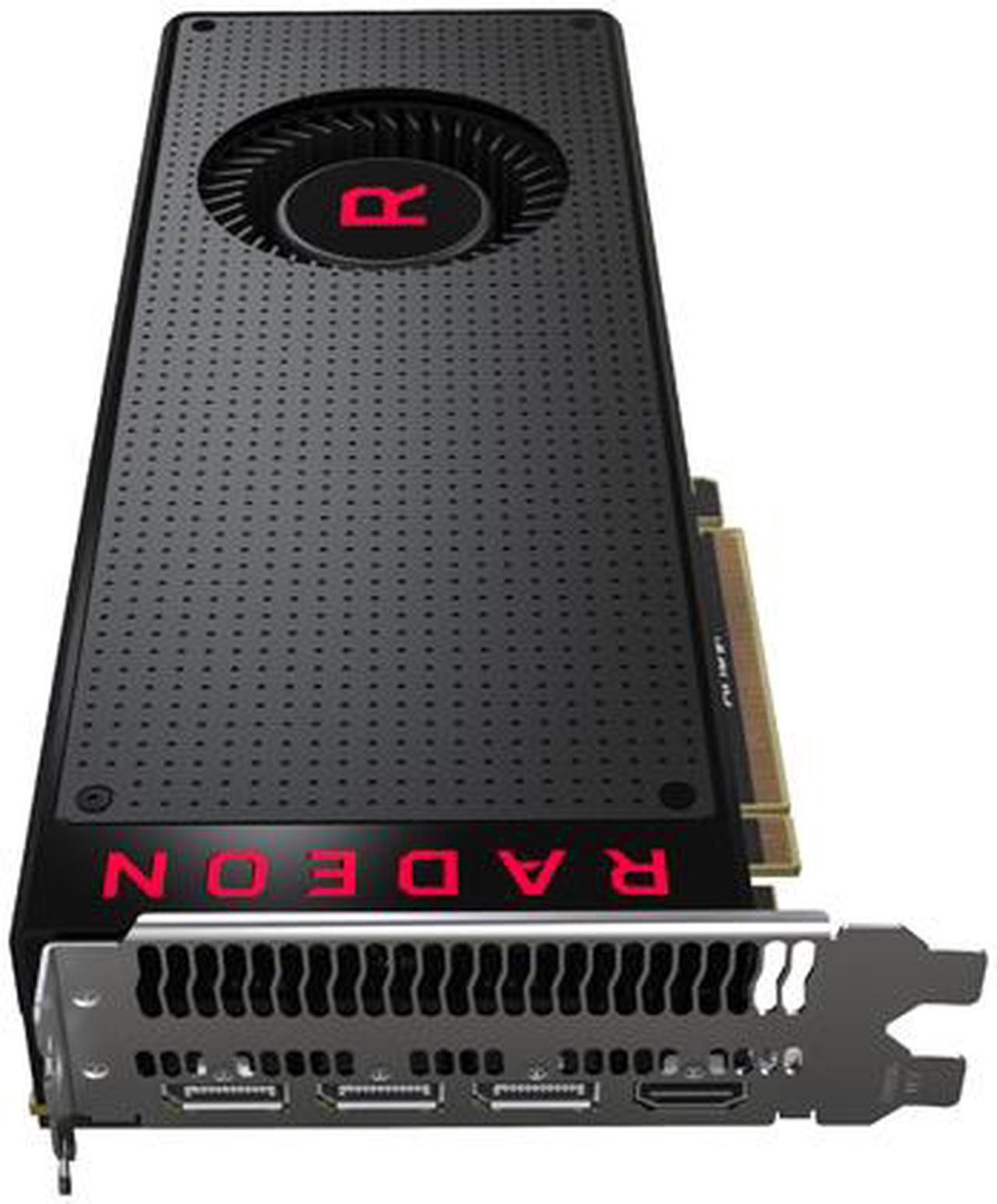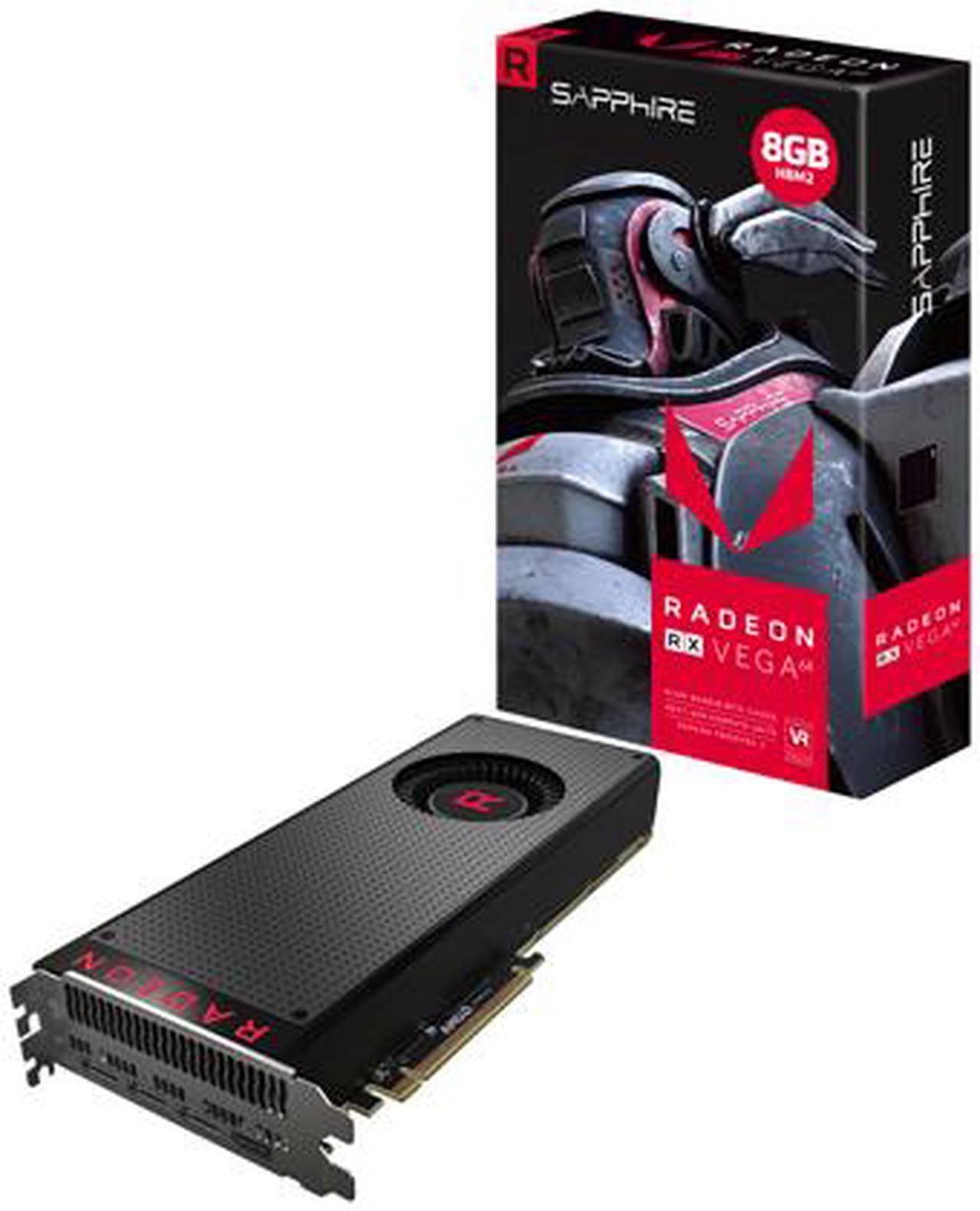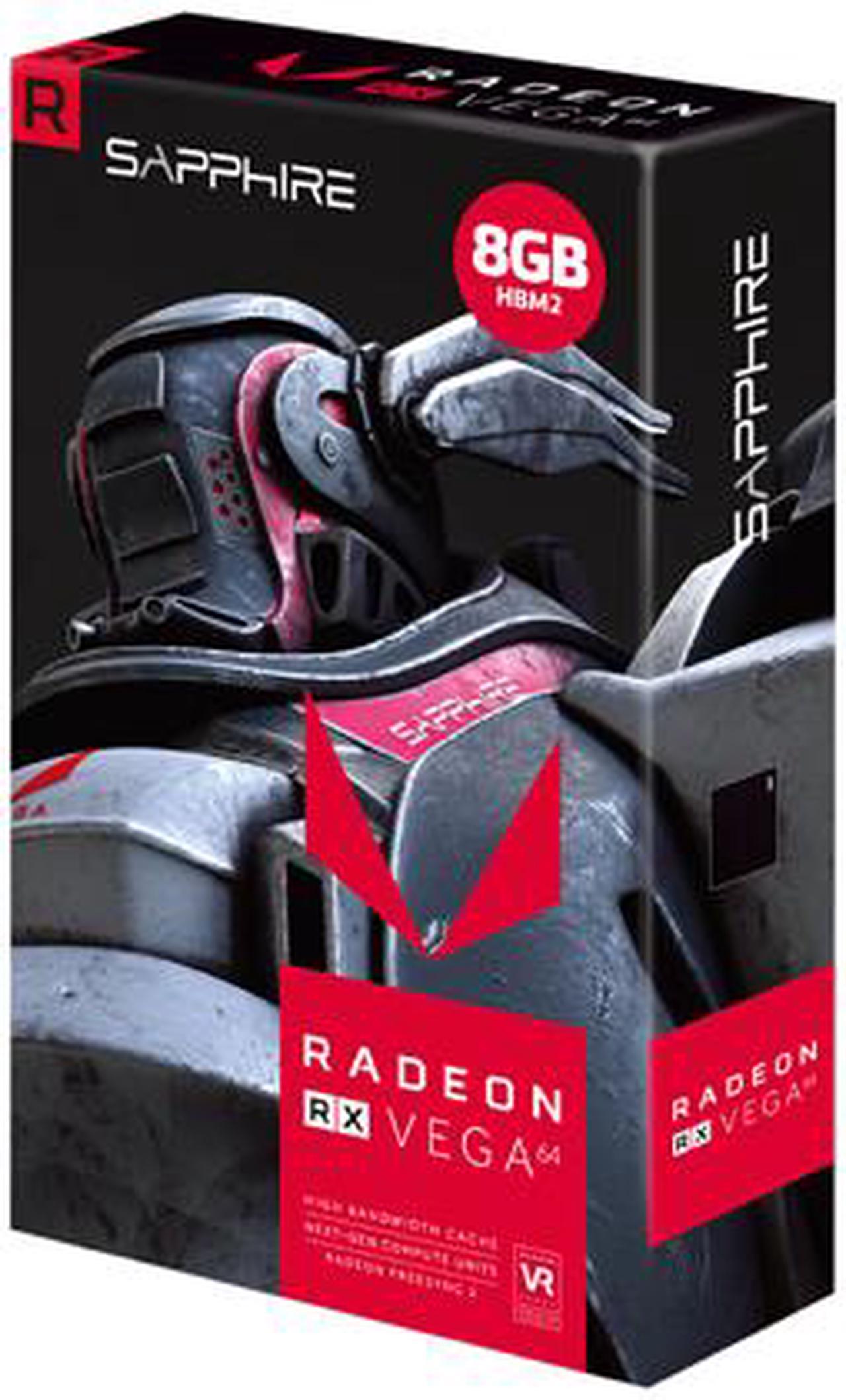
Built for extreme gamers, the SAPPHIRE Radeon RX VEGA 64 graphics card packs the ultimate power of AMD’s VEGA architecture with revolutionary HBM2 memory. Get ready to experience a superior gaming experience with high resolution, high refresh rate, and enter the exhilarating virtual reality world that you’ve always dreamed of. This card also comes with a load of AMD’s advanced technologies, such as FreeSync, LiquidVR and XConnect, to make your gaming experience even more enjoyable.

DirectX 12 is a new, “console-like” graphics API from Microsoft that empowers game developers with more direct and obvious control of PC hardware. This direct or “explicit” control better exposes the hardware resources of AMD Radeon GPUs to yield higher hardware throughput and, ultimately, more performance for users. To put it simply: much more efficient hardware through smarter software! At the discretion of a game developer, this superior efficiency can be spent on higher framerates, lower latency (VR), lower power consumption, better image quality, or some calculated balance of all four. In any scenario, gamers stand to benefit greatly from choosing AMD hardware to run their favorite DirectX 12 game.

Introducing HBM, a new type of memory chip with low power consumption, ultra-wide communication lanes and a revolutionary new stacked configuration. HBM’s vertical stacking and fast information transfer open the door for truly exciting performance in innovative form factors. And GPU applications are just the start – look for HBM’s superior power efficiency and space savings to spark industry-wide innovation.
HIGH BANDWIDTH
Performance well beyond DDR4/GDDR5/LPDDR4 HIGH BANDWIDTH
POWER EFFICIENCY
>3X the performance per watt of GDDR5
SMALL FORM FACTORS
94% less PCB surface area than GDDR5

No stuttering. No tearing.
AMD FreeSync technology allows a compatible graphics card and monitor to dynamically change frame rates for the optimum display quality without tearing.
Industry-Standard DisplayPort
FreeSync uses industry-standard DisplayPort Adaptive-Sync which eliminates screen tearing without all the usual lag and latency.

Now it’s easier than ever to connect and use an external Radeon graphics card. With AMD XConnect technology, external GPU enclosures configured with Radeon Graphics can easily connect and disconnect to a compatible ultrathin notebook or 2-in 1 over Thunderbolt 3 at any time, just like a USB flash drive—a first for external GPUs!

Virtual Super Resolution (VSR) is an AMD feature that is game and engine agnostic to simulate Super-Sampling Anti-Aliasing (SSAA) in games that do not have native SSAA support. VSR can also be used in conjunction with other native in-game anti-aliasing for even more game graphics-setting control. VSR allows games to render at higher resolutions (up to 4K) and then rescales them down to a lower native display resolution. Using this, you can get quality that rivals up to 4K, even on a 1080p display while playing your favorite games.

We are taking you beyond the boundaries of traditional PC displays. AMD Eyefinity technology expands the traditional limits of desktop computing by multiplying your screen area. With multiple monitors, games become more immersive, workstations become more useful and you become more productive (an average of 42% more productive according to one study).
Take your PC games to the next level of reality and immersion. Most modern games look great on three screens, and only AMD Radeon graphics offer you the ability to play across five screens for an eye-popping gaming experience. Other combinations and configurations with up to six screens work too.

LiquidVR is an AMD initiative dedicated to making VR as comfortable and realistic as possible by creating and maintaining what’s known as “presence” — a state of immersive awareness where situations, objects, or characters within the virtual world seem “real.” Guided by close collaboration with key technology partners in the ecosystem, LiquidVR uses AMD’s GPU software and hardware sub-systems to tackle the common issues and pitfalls of achieving presence, such as reducing motion-to-photon latency to less than 10 milliseconds. This is a crucial step in addressing the common discomforts, such as motion sickness, that may occur when you turn your head in a virtual world and it takes even a few milliseconds too long for a new perspective to be shown.



